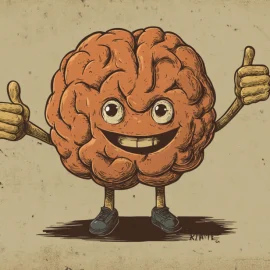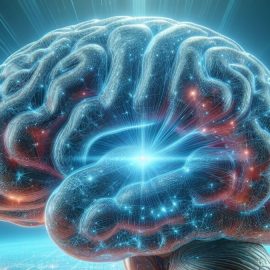

This article is an excerpt from the Shortform book guide to "Outlive" by Peter Attia. Shortform has the world's best summaries and analyses of books you should be reading.
Like this article? Sign up for a free trial here.
Should you practice fasting? What must you take into consideration? What are the pros and cons?
According to Peter Attia, fasting can be good for you—but, it’s usually not advisable. You can miss out on important nutrition when you fast. So, unless you suffer from metabolic dysfunction and need to take drastic measures to avoid chronic disease, steer clear from fasting.
Keep reading to learn more about Attia’s argument and to hear a counterargument from kidney specialist Jason Fung.
Peter Attia on Fasting
Fasting—restricting your calorie intake for fixed periods of time—has become an incredibly popular health trend in recent years. But, is it good or bad for you?
According to physician Peter Attia, fasting is exactly what some people need. If you find fasting easier than trying to follow strict dietary rules, it can help you reduce your calorie intake to a healthy level. Additionally, within three days of fasting, you’ll trigger starvation ketosis—your body burns fat stores to keep you from feeling hungry, and your cells recycle stray waste materials into functional parts in a process called autophagy.
However, Attia argues that, in many cases, fasting can be detrimental to your health. It’s nearly impossible to eat enough protein to support your body during a fast, so you’re likely to lose muscle (which is very unhealthy). For most people, this is too great of a sacrifice to make. Fast only if you have metabolic dysfunction and desperately need to burn fat to avoid chronic disease.
Metabolic Dysfunction
Attia explains that “metabolism” is the process by which your body converts the food and other nutrients you consume into energy and materials used to build, repair, and maintain your body. However, if you regularly ingest more nutrients than you need—in other words, if you consume too many calories—your body will start storing them in increasingly unhealthy ways.
Your body converts much of the food you eat into glucose (also known as blood sugar), a form of energy that’s easily stored, transported, and utilized. If your body doesn’t need to immediately burn that glucose as energy, it can store it in healthy ways: in your muscles and liver as a compound called glycogen, or as subcutaneous fat, the healthy layer of fat found under your skin all over your body. However, Attia warns that once this storage is full, your body begins storing this energy in places where it doesn’t belong; for instance, unhealthy visceral fat. This is abdominal fat that surrounds important internal organs and causes dangerous inflammation (an immune response that can cause pain, swelling, and other symptoms).
Eventually, after you’ve consumed too many nutrients over an extended time, tiny bits of fat squeeze their way inside muscle cells. Attia explains that this fat weakens your cells’ ability to absorb glucose from the bloodstream and use it as energy. Your pancreas tries to compensate for this damage by increasing production of insulin, the hormone that helps push blood glucose into cells that need it. Unfortunately, if your cells are overloaded with elevated insulin for too long, they become less responsive to insulin and absorb even less glucose—a condition called insulin resistance. Insulin resistance directly causes all four of the chronic diseases we mentioned before.
The term “metabolic dysfunction” refers to this condition as a whole—insulin resistance is one main component of metabolic dysfunction.
| Counterargument: Fasting Is Healthy for Everyone In The Obesity Code, Jason Fung takes a much stronger pro-fasting stance than Attia, arguing that fasting is essential to reverse insulin resistance. Fung asserts that, if you’re metabolically unhealthy, your body believes it needs more food than is healthy, sending signals that make it incredibly difficult to stick to a healthy diet: • Your metabolism slows, burning less energy and storing more glucose as fat. • You produce less leptin, the hormone that makes you feel full and satisfied after eating. • You produce more ghrelin, a hormone that makes you feel hungrier. This creates a vicious cycle in which you crave and eat more food, raising your insulin and further disrupting your hormones. According to Fung, fasting is the key to escaping this cycle, as triggering ketosis significantly lowers your insulin levels. This is arguably the reason some people find fasting much easier than sticking to a strict diet (which may explain why fasting is popular). It’s not just that its rules are easier to follow, as Attia claims—it also resets your hunger hormones to reduce feelings of craving. Fung recommends regularly fasting for 24 to 36 hours at a time, and he notes that your insulin levels will fall after just 24 hours. He also argues that you can trigger ketosis in two to three days, rather than the three days Attia contends. Unlike Attia, Fung believes that fasting is beneficial for everyone. In an episode of Attia’s podcast The Drive, Fung explains why he doesn’t share Attia’s concerns about muscle loss from reduced protein intake. He contends that, when fasting, the body gets much of the protein it needs through autophagy, recycling excess protein such as loose skin rather than breaking down muscle. |

———End of Preview———
Like what you just read? Read the rest of the world's best book summary and analysis of Peter Attia's "Outlive" at Shortform.
Here's what you'll find in our full Outlive summary:
- A guide on how to extend the active and fulfilling part of your life
- How to circumvent the mental and physical decline that often comes with age
- The one chronic condition that can cause four of the most deadly diseases







I wonder how intermittent fasting compares to other weight loss methods ( eg oxempic) in terms of muscle?